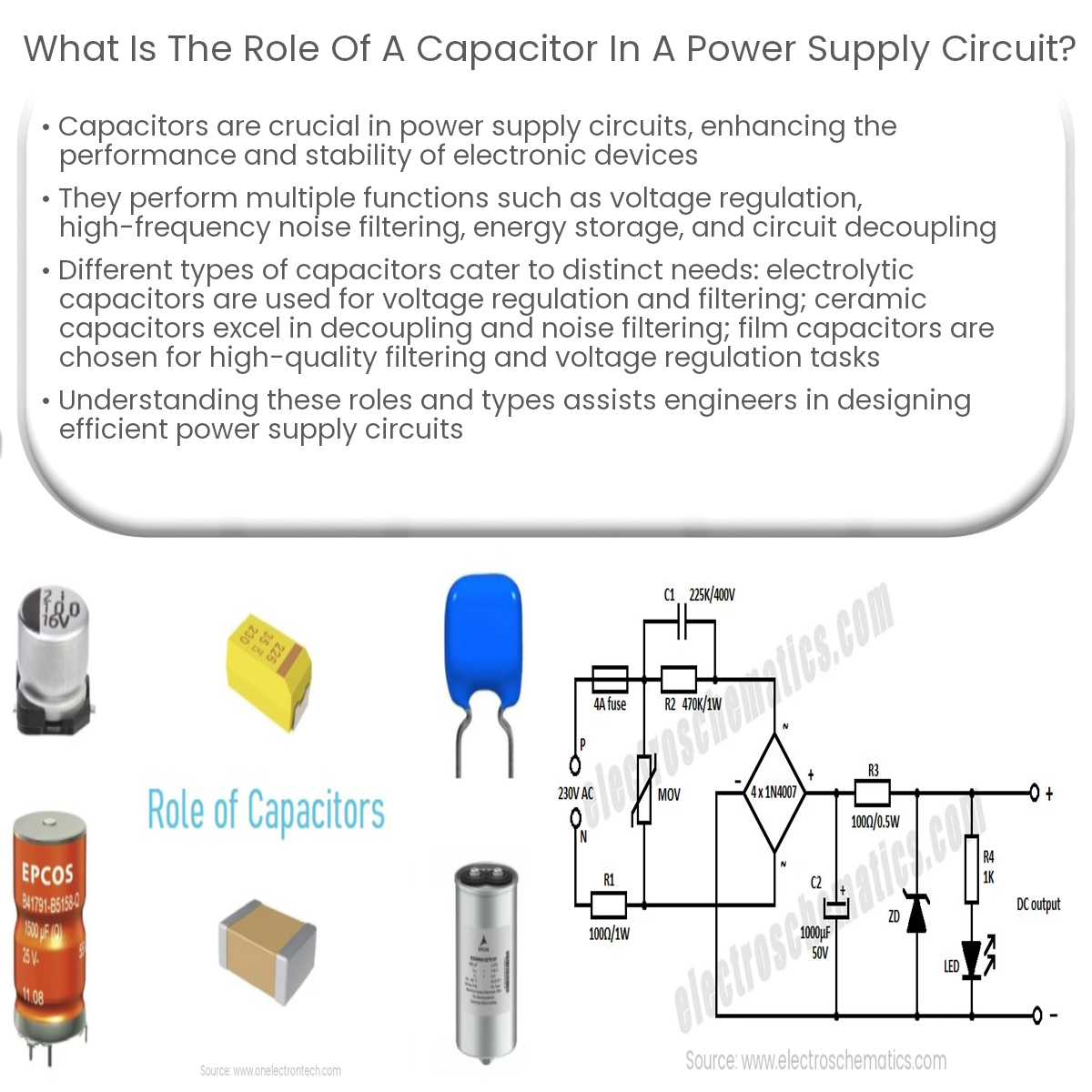Capacitors in power supply circuits provide voltage regulation, filtering, energy storage, and decoupling, ensuring stable and efficient performance.
Understanding Capacitors in Power Supply Circuits
Capacitors are essential components in power supply circuits, providing a range of functions that enhance the performance and stability of electronic devices. This article will explore the role of capacitors in power supply circuits and their various applications.
What is a Capacitor?
A capacitor is a passive electronic component that stores electrical energy in an electric field. Capacitors consist of two conductive plates separated by an insulating material, known as a dielectric. The ability of a capacitor to store energy is measured in farads (F).
Role of Capacitors in Power Supply Circuits
Capacitors perform several critical functions in power supply circuits, contributing to the overall stability and efficiency of electronic devices.
- Voltage Regulation: Capacitors act as temporary energy storage devices, smoothing out voltage fluctuations in the power supply. This helps to maintain a consistent voltage level and prevent voltage spikes or drops, which can damage sensitive components.
- Filtering: Capacitors filter out high-frequency noise and unwanted signals from the power supply, ensuring a cleaner and more stable output voltage. This is particularly important for devices that require precise voltage levels, such as audio and video equipment.
- Energy Storage: Capacitors store energy during low-demand periods and release it during high-demand periods, ensuring a consistent power supply. This is especially useful in applications that require sudden bursts of power, such as motor starting or flash photography.
- Decoupling: Capacitors isolate different sections of a circuit, preventing interference and ensuring that each part of the circuit receives a stable voltage supply. This is important for complex electronic devices with multiple components that require independent power supplies.
Types of Capacitors in Power Supply Circuits
There are several types of capacitors commonly used in power supply circuits, each with unique properties and applications:
- Electrolytic Capacitors: Electrolytic capacitors offer high capacitance values and are commonly used for voltage regulation and filtering in power supply circuits.
- Ceramic Capacitors: Ceramic capacitors are compact and have excellent high-frequency filtering capabilities, making them suitable for decoupling and noise filtering applications.
- Film Capacitors: Film capacitors are known for their stability, low distortion, and long service life, making them ideal for high-quality filtering and voltage regulation tasks.
Conclusion
Capacitors play a vital role in power supply circuits, providing voltage regulation, filtering, energy storage, and decoupling functions. By understanding the roles and types of capacitors, engineers can design efficient and stable power supply circuits for various electronic devices and applications.


